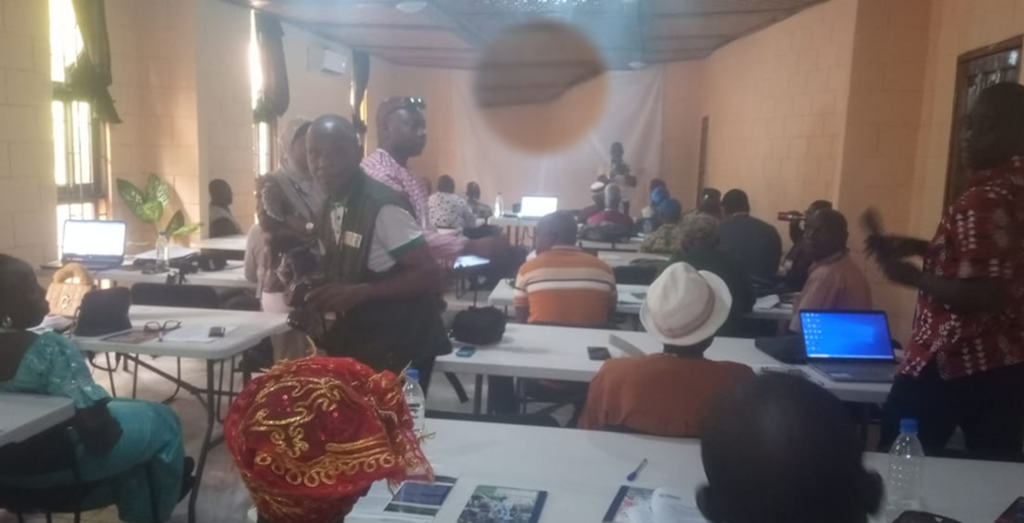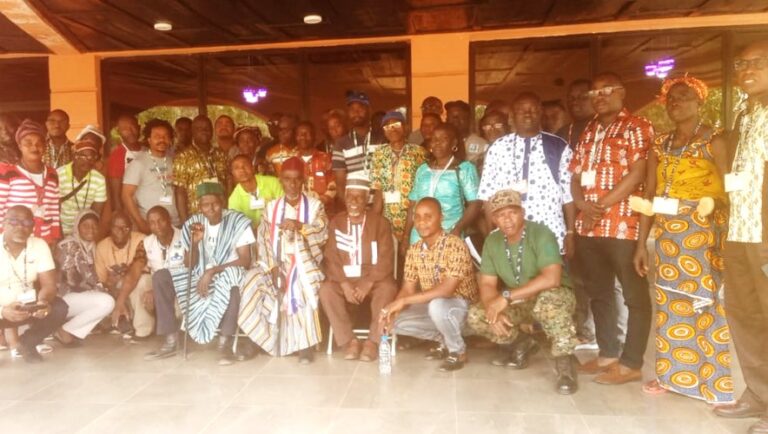By Oliver Zleh Jr., Grand Gedeh County Correspondent
The West Africa Biodiversity and Low Emissions Development (WABiLED), in collaboration with Forestry Development Authority (FDA) and its partners, have climaxed a two-day intensive training with the people of Zwedru in Grand Gedeh County.
The training was focused on Grebo-Krahn-Sapo landscape restoration mapping. It brought together the authority of FDA, chiefs, and elders of the traditional council in Zwedru, and the Secretary General of the Mino River Union (MRU).
On Wednesday, February 7, 2024, during the ceremony, Kumeh Assaf, who served as a head facilitator during the workshop, said the exercise was intended to convene a Grebo-Krahn-Sapo landscape stakeholder consultation, review, and validations that would inform the final, comprehensive Restoration Opportunity Assessment Methodology (ROAM) report for Tai-Grebo-Krahn Sapo trans-boundary landscape.

According to him, the ROAM report and landscape opportunity maps will provide an appropriate information on land use, and decisions on restoration options including biodiversity/wildlife corridors, strengthening connectivity between Tai and Grebo-Krahn-Sapo (GKS), and identify how restoration options can contribute to climate change mitigation and adaptation.
He said the training program has also provided a clear understanding and knowledge for participants on land tenure, land- based investment potentials in the Grebo-Krahn-Sapo Landscape, to gauge key stakeholder’s views and inputs to contribute to the finalization of the Grebo-Krahn-Sapo Landscape Report.
WABiled is an organization designed to strengthen the capacity of national and regional networks and institutions that will enforce and prosecute wildlife trafficking, improve regional and trans-boundary cooperation.
It is also focuses on conservation strategies that incorporate best practices for sustainable natural resources management (MRU) including engagements with private sector and improve capacity for economic planning and development of low emissions development (LED) strategies.
Mr. Assaf has put Forest Landscape Restoration (FLR) as one of the techniques to restore ecological integrity and functionality of Landscape and enhance human well-being. Meanwhile, Joseph J. Tarley, a beneficiary of the training program, has commanded the organizers and facilitators to provide a sustainable education on restoration of landscape.

